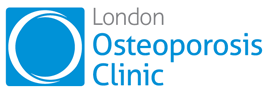When alleviating the discomfort associated with conditions like gastro-oesophageal reflux disease (GORD), stomach ulcers, and Zollinger-Ellison syndrome, proton pump inhibitors (PPIs) have often secured a spot in our medicine cabinets. However, whilst PPIs can offer symptom relief, inappropriate prolonged use can lead to potential complications.
Understanding PPIs and Gastric pH
PPIs, including popular drugs like omeprazole, lansoprazole, and esomeprazole, work by reducing the production of stomach acid, providing a more alkaline environment that facilitates healing and reduces discomfort. Whilst adjusting the gastric pH can alleviate symptoms, it’s vital to recognise that this modification can also ripple into other physiological areas, sometimes with less-than-desirable outcomes.
PPI Use and Bone Health
One concern surrounding prolonged PPI use relates to bone health. The alteration in gastric pH impacts the body’s ability to absorb calcium, a mineral pivotal for bone strength and regeneration. Studies have shown that extended PPI use can be associated with an increased risk of fractures and osteoporosis. Therefore, ensuring PPIs are utilised for the optimal duration, and not longer, is paramount to preserving bone integrity.
Ensuring Judicious Use
- Condition-specific Usage: PPIs should primarily be reserved for conditions where their use is substantiated by robust evidence, such as GORD, peptic ulcers, and cases involving pathological hypersecretory conditions.
- Optimal Duration: PPI therapy initiation and discontinuation should be carefully calibrated to provide therapeutic benefit whilst minimising duration. Patients and healthcare professionals must work symbiotically to evaluate the necessity and efficacy of ongoing PPI therapy regularly.
- Risk-Benefit Analysis: As with any medication, a thorough risk-benefit analysis should underscore PPI prescription and usage. Healthcare providers should weigh the therapeutic advantages against potential risks, such as those to bone health, and consider alternative treatments when feasible.
- Patient Education: It is vital to ensure patients are well-informed about using PPIs correctly, potential risks, and alternative approaches to managing their conditions. Knowledge empowers individuals to actively engage in care and make informed decisions with their healthcare team.
- Monitoring and Adjustment: Continuous monitoring and potential dose adjustments are necessary to ensure that PPI therapy remains aligned with the patient’s therapeutic needs and minimises exposure to possible adverse effects.
Navigating Forward
As we explore the path of healthcare and pharmacotherapy, mindful navigation through medications like PPIs is imperative. The judicious use of these drugs, ensuring they are best matched to the patient’s condition and utilised for an optimal duration, will safeguard against unintended consequences, like compromised bone health.


One Comment